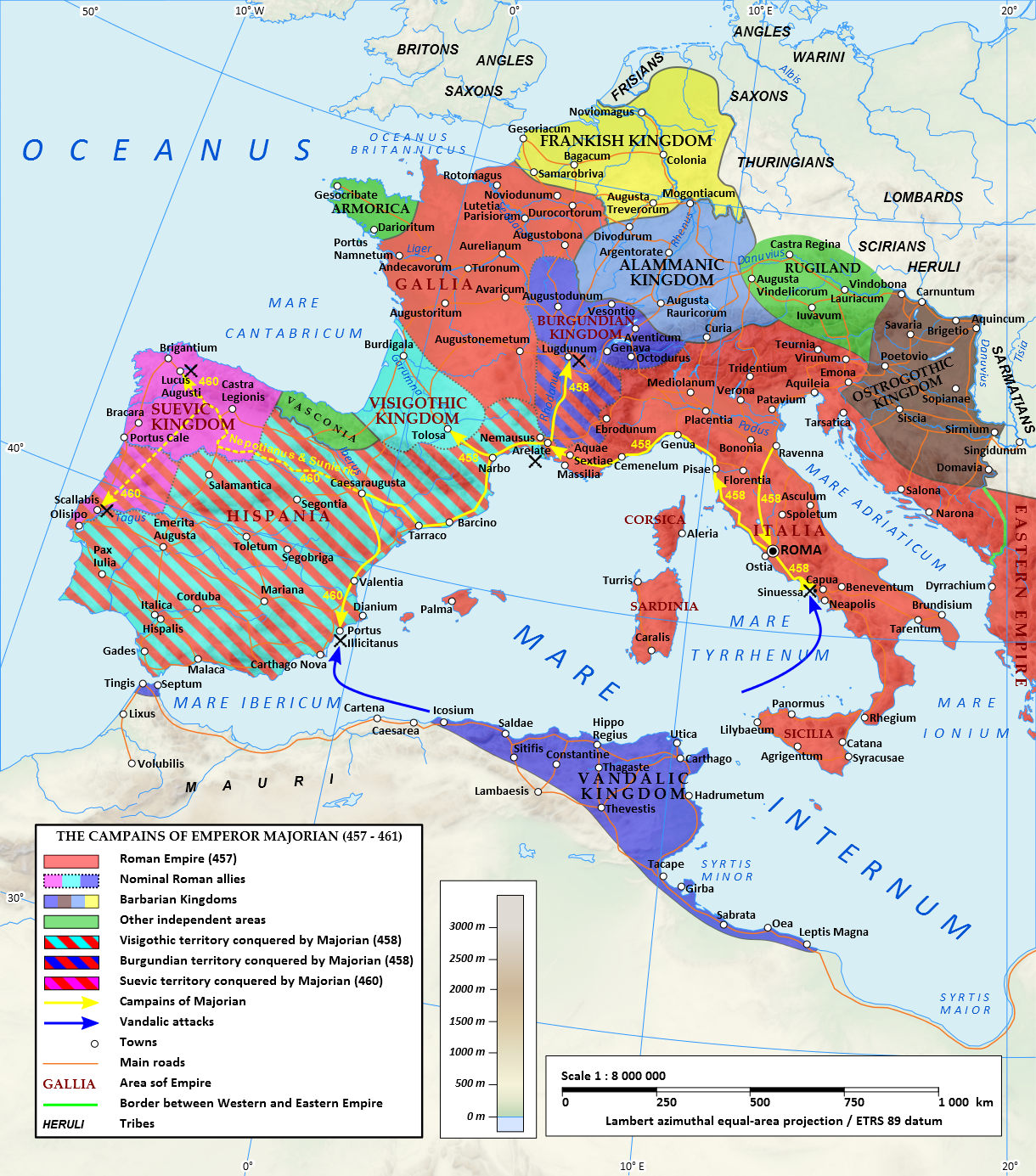I have a question to
MaxPuster:
In this link below, you wrote:
http://forums.civfanatics.com/showpost.php?p=13247027&postcount=20
MaxPuster said:
A similar (if slightly different) case was started deliberately by Papadopoli in 1726, claiming that Copernicus joined the Polish natio at Padua and thus must have been Polish (while in fact there was no such Polish natio at Padua, and records of Bologna where a Polish natio existed show that Copernikus joined the German natio there before) - a falsification that started some 290 years of - yet inconclusive - debate on Copernicus heritage.
You are mistaken here, there was a Polish Natio at Padua during the 16th century (and also much earlier, already from the 13th century):
http://pl.wikipedia.org/wiki/Nacja_(uniwersytet)#Polska_nacja_na_uniwersytetach_europejskich
Translated with use of:
http://free-website-translation.com/?pl
http://translate.google.com/transla...9#Polska_nacja_na_uniwersytetach_europejskich
Not only Polish Natio existed at Padua during the 1400s and the 1500s, but it also had its own inn and its own student club.
About Polish Natio at Padua - excerpt from from the Google-translated link posted above (I have improved the Google-translation a bit):
(...) Seven Poles were elected rectors of the University of Padua, among them - then a 21-year-old youth - future Hetman of the Crown, Jan Zamoyski. In the years 1556-1589 Polish Natio in Padua had an inn for its members, and Polish students in Padua were famous for their elegance [28]. Luke Górnicki mentioned [29], the existence at Padua of "the academy between Poles" (...) it was a kind of a student club, where young people enjoyed Renaissance Italian ways: drinking, singing, entertaining, social games, and - what is most characteristic - discussing hundreds of topics about love and politics, the arts and everyday life. In each of these discussions one was expected to show wit, erudition, intelligence. The initiator of the "academy" was in 1553 or 1554 Wojciech Kryski [30] , which can now be referred to as a precursor to the idea of student research. Also Barycz mentions this organization [21]. (...)
For example Witelo (Erazm Ciołek) was member of that Polish Natio at Padua (even though only his mother was ethnic Polish, while his father was an immigrant who came to Poland from Thuringia - but I'm not sure whether he was Slavic from Thuringia or German from Thuringia):
(...) During the first four centuries (13th - 16th) Polish Natio is clearly recognizable at European universities. Among the first, and once the most prominent Poles studying at European universities, was Witelo (Erasmus Ciolek). In Paris he studied liberal arts in the years 1250-1260, and then in Padua canon law - there at Sala dei Quaranta can be found his image described WITELO POLACCO XIII SECOLO [25]. (...)
Polish Natio at Bologna existed
in general, but I'm not sure whether it existed (or how many students and professors it had) in particular in year 1496, when Kopernik started studying there. So maybe he signed in to the German Natio because there were not so many students and professors in the Polish Natio at that time (and it was thus insignificant), or because the Polish Natio did not exist at that particular time.
What is your source that in 1496 there was a Polish Natio at Bologna ???
BTW - please note that "German Natio" doesn't mean that only
ethnic Germans belonged there. Many Slavic people from the Holy Roman Empire, from Ducal Prussia, etc. (just to mention Czechs from Bohemia and Moravia, Poles and Czechs from Silesia, etc.) also belonged to the "German Natio". And for example at the University of Paris, there was neither Polish Natio nor German Natio - both Germans and Poles belonged to the English Natio there.
I found several articles which say that there was no Polish Natio at Bologna at that time (1496), and that Germans, Poles, Hungarians and several other groups belonged to the German Natio. Do you have sources which contradict this and say that there was a Polish Natio at Bologna in 1496 ???
===========================================
Paris was conservative and decided that number of nations at their university should be fixed at 4 and did not allow any increase of their number.
This why Italians, Spaniards, etc., belonged to French Natio and Germans, Poles, Hungarians, etc., to English Natio (until it was renamed):
In most of other Medieval universities a greater diversity of nations could be found and number of nations was not fixed, but flexible.
But there were also some universities which did not divide students for nations at all.
=====================================
If there was no Polish Natio at Bologna then anyone Polish would be assigned to the nearest Natio:
A similar division of students had been adopted at the Charles University in Prague, where from its opening in 1347 the studium generale was divided among Bohemian, Bavarian, Saxon, and Polish nations. When there was not a "natio" of a given nationality, students were assigned to another nation.
And according to Alexandre Koyre, Natio Germanorum was among the "privileged" nations at Bologna:
Although great importance has frequently been ascribed to this fact, it does not by any means imply that Copernicus ever considered himself to be German. The 'nationes' of a medieval university had nothing in common with nations in the modern sense of the word. Students who were natives of Prussia and Silesia were automatically described as belonging to the Natio Germanorum. Furthmore, at Bologna, this was the 'privileged' nation".
Alexandre Koyre: Astronomical Revolution, Copernicus - Kepler - Borelli. Cornell University Press, 1973




